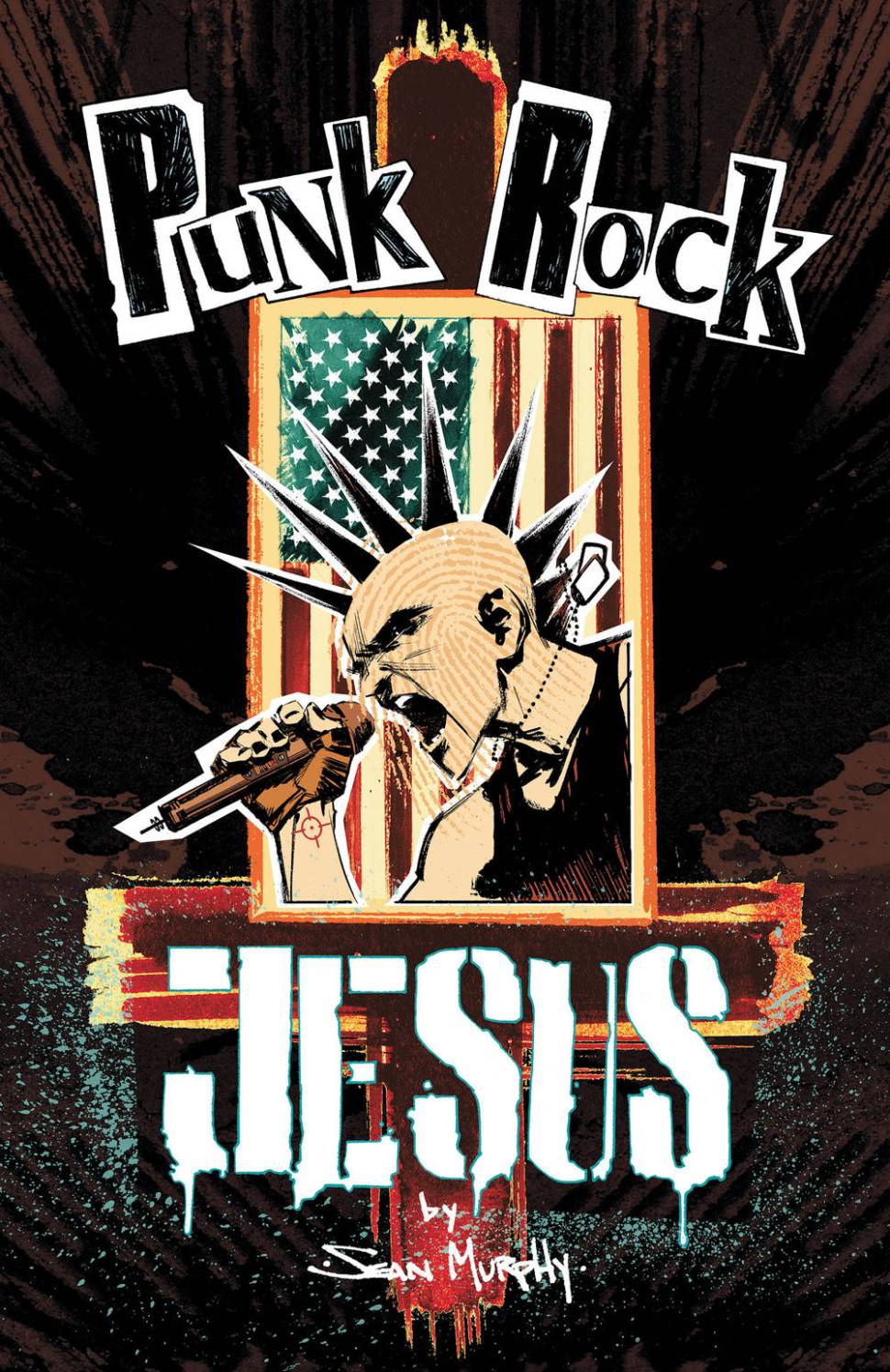
Sean Murphy’s Punk Rock Jesus is a rockin’ comic about the Second Coming. It opens with a psychotically ruthless show-runner arranging to clone Jesus from DNA salvaged from the Shroud of Turin, implanting a foetus in the womb of a teenaged virgin, all for a reality TV show that starts with auditions for the part of Christ’s mother. Gwen, the desperate teen who gets the part, is only one of the many memorable characters who make up the resulting set piece: there’s Dr Sarah Epstein, a brilliant geneticist who’s been promised funding for a carbon-fixing superalgae if she helps create the clonal Christ; there’s Thomas McKael, an IRA soldier turned supergrass turned super-security director, and several others who come to prominence as the story unfolds (including Cola, a genetically engineered tame polar bear).
The story perks along for the first third, as the dismal life of Chris — as the clone is called — is run out on the screens of America, and in the high-security compound on an offshore island under constant siege from militant Christian fundamentalists who are torn on the question of whether Chris is the second coming or a mocker. Then there’s a turning point where Chris becomes and adolescent and discovers some of the seedier truths about his life and the miserable existence his mother has been forced into all through it.
That’s when Punk Rock Jesus is born. To a thudding soundtrack of vintage punk smuggled in on vinyl (CDs would set off the metal detector) Chris gives himself a mohawk, tears his clothes to rags, and surprises his minders by stepping out on stage and declaring himself to be an atheist. In the ensuing chaos, Chris escapes from the network and its evil representatives and makes his way to the drowned TAZ of lower Manhattan where he becomes the front-man for a “the last punk band in the world,” the Flak Jackets.
And that’s when the story really roars to life, becoming at once sillier and more serious, but avoiding some of the ponderousness of the setup. Serious questions of religion’s role in society are raised; rock is bepunkéd; dressing rooms are trashed; the media is expertly dissected. It’s a near-perfect rocket-ship ride through some of the best material from comics like DMZ and Transmetropolitan, with a healthy dose of radical atheism and geopolitics thrown in.
It’s got pathos, laughs, rage and comeuppances, and awesome punk rock not-giving-a-fuck. What more could you ask for?